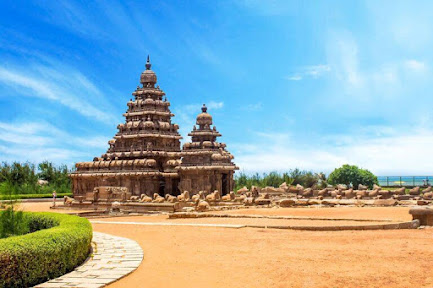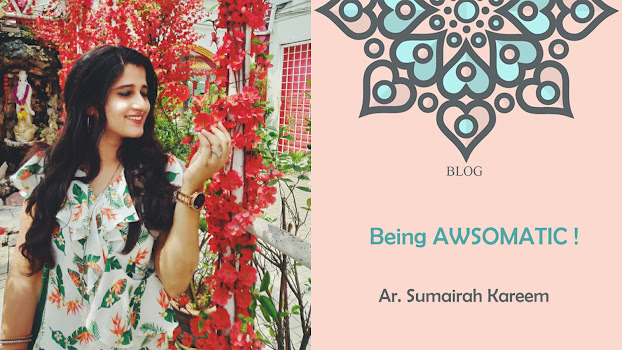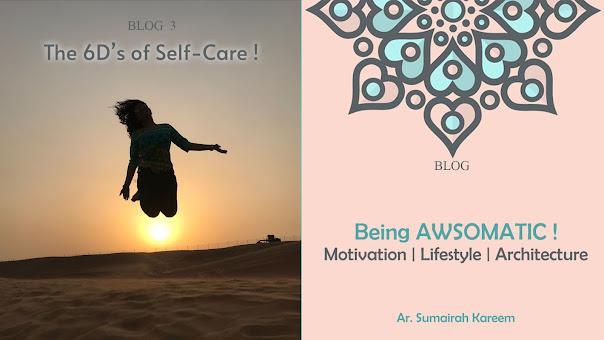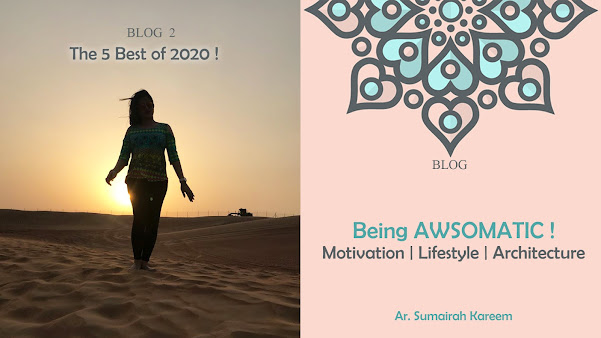Exploring the Architecture of Chennai
Exploring
my city’s architecture, Chennai has been a long-term adventure, as residing
here for all these years of my life & now as an Architect (Portfolio), the way of
perceiving it has changed a lot more and transformed into something more
beautiful. Chennai city is one of the famous cities of India and is the capital city of Tamil Nadu, which has been the home of the Tamil language for
more than 2,000 years. If not for its present merits, the city is worth paying
a visit just to be in the presence of a culture and a language that predates
even the Roman Empire.
Architecture
here is known for its highly ornamented temples, shrines, and churches. With
diversification in styles, typologies, and touristic attraction – the architectural
aura set it apart like no other city. Deep diving into the actual
architectural essence of the place, let’s explore some of its most fantastic architecture
& its features.
1. Historical Significance.
F. S.
Growse, Sir Swinton Jacob, R. F. Chisholm, and H. Irwin were the pioneers of Chennai’s
style of architecture, of whom the latter two designed several buildings in
Chennai. The Chepauk Palace, designed by Paul Benfield, is said to be the first
Indo-Saracenic building in India.
Chennai as a city provides a lot of variety in terms of its architecture. From ancient Tamil architecture-styled temples built by the Pallavas to the Indo-Saracenic style (pioneered in Madras) of the colonial era, to 20th-century steel and chrome of skyscrapers. Chennai has a colonial core in the port area actually, surrounded by progressively newer areas as one travels away from the port, punctuated with old religious buildings. Some the Ancient temples & historic churches include the following:
- The Kapaleeshwarar Temple
One of the amazing shrines of temple architecture with incredible details and an exquisite monumentality is the Kapaleeshwarar Temple. The temple that we see today is built 300 years back. Built by the rulers of the Tuluva Dynasty, this the temple that accommodates shrines of Lord Shiva was accomplished in the Dravidian with carvings of bulls, elephants, and peacocks in the complex is complete magic in the sense of architecture proportion and scale.
- Santhome Church
Santhome Basilica has an all-white facade and is built in neo-gothic style, with big windows and naturally lit stunning interiors. The windows have multi-colored panes and the rows of wooden pews add to the church's entire beauty. It was built in the 16th century by Portuguese explorers, over the tomb of Saint Thomas, one of the twelve apostles of Jesus. In 1893, it was rebuilt as a church with the status of a cathedral by the British.
- Fort St. George
Serving as the administrative sector today with six meters tall walls embellished in white, the
fort is one of the major points in Chennai and the major reason for the
existence of the town that surrounds it today. The fort currently houses the
Tamil Nadu legislative assembly and other official buildings. This
military marvel has bold black columns and golden ornamentation portraying the
pride and power it bears.
2. Cultural & Heritage Beauty
Chennai, houses many architectural wonders that have become synonymous with the city’s heritage, culture, and history. Graced with complex architecture, a variety of stunning sculptures, and rich inscriptions, the temples remain the very essence of the culture and heritage of Tamil land, with historical records dating back to at least 3,000 years. Some of the heritage value comes from its forts, museums, and cultural centers which have a huge legacy left behind, like the few mentioned below.
- Valluvar Kottam
Being one of the most popular attractions in Chennai and is visited by tourists from all over the world, it was constructed in 1976, as an auditorium in memory of the poet-saint Thiruvalluvar. All 1,330 verses focusing on leading a life of virtue in the context of ethical, economic, and political affairs of the poet's epic, the Thirukkural, are inscribed on the granite pillars that surround the 4000 seated auditorium. There is a 101-feet high temple chariot structure with a life-size image of the poet in it.
- Dakshin Chitra
Housing
many communities and other regions of South India, Dakshin Chita is Chennai’s
Best Heritage Museum to get an exciting overview of cross-culture, art, architecture,
lifestyles, crafts, and performing arts of South India.
With the open-air museum showcases various styles of houses, houses have been recreated in
the same manner as the original structures, and consist of several elements
that have been brought over from the original site and carefully reconstructed.
- Government Museum
The
Government Museum, established in 1851, is spread out over the 16-acre Pantheon
Complex, where you’ll find buildings including the Museum Theatre, Bronze
Gallery and Contemporary Art Gallery.
With a high
pedestal which can be entered from a big flight of stairs, the building has
walls and pillars intricately designed with geometrical and floral themes. It’s
worth visiting to appreciate the varied architectural styles within the
complexes, such as the remarkable Italianate-style Museum Theatre and the
Indo-Saracenic façade of the National Gallery of Art.
3. City of Styles & Notable Buildings
The
Indo-Saracenic style of architecture dominated Chennai's building style just as the gothic style dominated Mumbai's building style, before the advent of the Art Deco
style. After the Indo-Saracenic, Art Deco was the next great design movement to impact the city's skyline and it made way for the international and
modern styles.
Whether it’s the Agraharam architecture in Mylapore, that consists of traditional row houses usually surrounding a temple. Many of them were built in the traditional Tamil style, with four wings surrounding a square courtyard, and tiled sloping roofs.
After Independence, the city witnessed a rise in the Modernism style of architecture. The completion of the LIC Building in 1959, the tallest building in the country at that time, marked the transition from lime-and-brick construction to concrete columns in the region.
- Rippon Building
One of the
finest examples of the Neoclassical style of architecture featuring exquisite
detailing and décor, along with a Westminster Quarters Chime Clock located in
the central building.
- Madras High Court
The Madras
High Court is a good example of the Indo-Saracenic style which is the second
largest judicial building in the world next only to the Courts of London, completed
in 1892.
- Chennai Central Station
Built-in the Gothic Revival style, the original station was designed by George Harding. The main building, a combination of Gothic and Romanesque styles has been declared as a heritage building. The clock tower with the flagstaff, the tallest of the towers of the main building, has four faces and reaches a height of 136 ft.
- Higginbotham’s
Chennai has
more to boast about, the fact that the oldest bookstore in India is located
here. Although the building has aged, the Palladian architecture with an old-fashioned
sign with the name of the bookstore, it still stands out among the surrounding
structures. The interior is yet far striking, with geometric black-and-white
patterned floors, lofty ceilings, stained-glass windows, and a curved wooden
staircase.
- Parry’s Corner and NSC Bose Road
Parry’s
Corner is known as prime CBD’S (Central Business District) of the city of Madras
in the early 20th century and features some of the best examples of the Art
Deco style of architecture in the city. Among the several Art Deco buildings
lining the area, prominent ones include Dare House, constructed in 1940, which
has remained a prime cultural identifier of Chennai’s architecture.
- Senate House
It was
completed in 1879 and is presently located within the University of Madras
campus. It’s a classic example of colonial Indo-Saracenic architecture that
Chennai is known for, pioneered by British architect Robert Chisholm, which
incorporates Hindu, Mughal, and Gothic styles. The Senate House is beautiful,
particularly in its myriad details such as the exquisitely designed domes with
stained-glass windows, and graceful porticos. The building also features
Byzantium architectural elements in its design.
- ITC Grand Chola
The ITC Grand Chola is a 5-star luxury hotel in Chennai, India. It is located in Guindy, designed by Singapore-based SRSS Architects, is of mixed-use development with three separate wings and is themed after traditional Tamilian Architecture of the Chola Dynasty.
4. World Famous Attractions.
- Group of Monuments at Mahabalipuram
The world
famous “Mahabs” - is home to a UNESCO world heritage site that features
stunningly sculptured rock reliefs, ancient cave sanctuaries, chariot temples and the
Shore Temple dating back to the 7th century and is a visual delight.
- Marina Beach
Marina
beach in Chennai is India's longest and the world's second-longest beach. Marina
beach is a major tourist attraction of the city. People visiting Chennai make a
point to visit the beach. The beach is popular for its shops and food stalls
run by about 500 shops run by about 1,212 vendors. The memorials and statues,
morning walks, joggers' track, lovers' spots, aquarium, and the like make it a
hangout for people of all ages.
- Thousand lights mosque
Designed
and constructed by the Wallajah family, the simplistic multiple domes over the roof blow
your breath away. With long pirated minarets and the Holy Quran inscribed interior
walls, this place is lit with colors and grandeur during the times of Muharram. Shaded of beige, green, and browns it is highly influenced by the mosques in the Middle East, where the Islamic pattern of a
larger single dome with four smaller ones at corners is followed beautifully.
Documenting and researching the architecture of my city was an interesting & informative process in sharing the highlights of some of its beauty. Chennai comprises many such statement buildings, styles, and beautiful places that make the city altogether more special & famous. Housing enough examples in various styles/typologies/categories, Chennai is an absolute delight when it comes to Architecture. Hence, whenever you get a chance to visit Chennai, make sure some of the above-mentioned places are on your list for sure!
🤍 Follow | Comment | Subscribe 🤍
My Instagram | My LinkedIn | My Pinterest | My Portfolio My WEBSITE





















Comments
Post a Comment